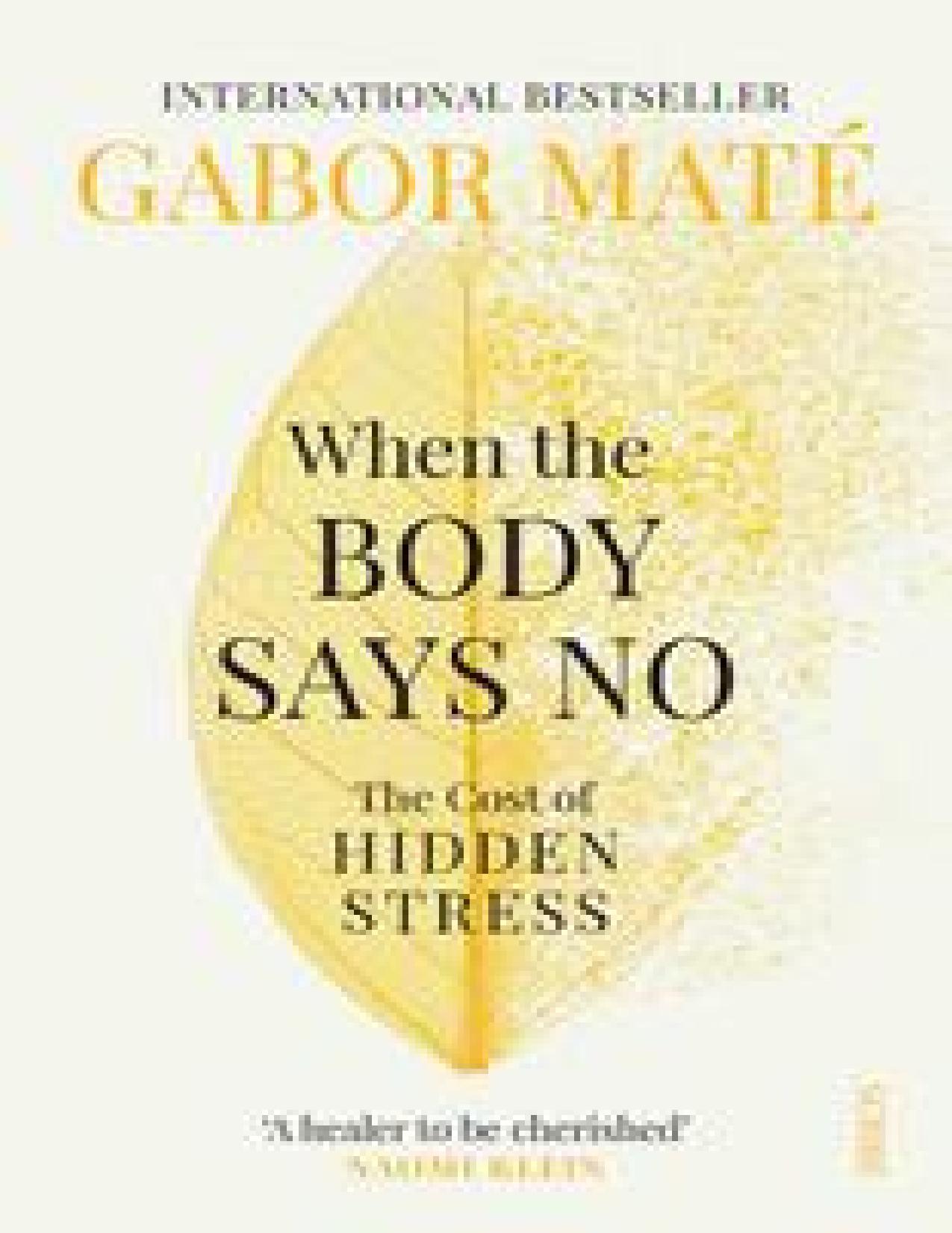When the Body Says No by Gabor Maté

Author:Gabor Maté
Language: eng
Format: epub, pdf
Tags: MED004000, SEL024000, HEA039000, SEL036000, HEA028000, PSY022060
Publisher: Scribe Publications Pty Ltd
Published: 2019-04-16T16:00:00+00:00
12
I Shall Die First from the Top
ALZHEIMER’S DISEASE IS BECOMING THE baby boomers’ nightmare. Affluence and advanced medical care will ensure that the cohort now entering ripe middle age will live longer than any comparable group in history—and will see more of its members slide into dementia than any previous generation. The number of elderly Canadians is predicted to increase by 50 per cent in the next half century. About 100,000 people die of Alzheimer’s annually in the United States, where in 1999 there were estimated to be four million people with the disease. That latter statistic is expected to reach fifteen million in 2050, if present trends continue.
Conditions that lead people to be demented—literally, “out of mind”—become more common as we get older. Three per cent of seventy-year-olds suffer from Alzheimer’s or some other form of dementia; by age seventy-seven, the figure rises to 13 per cent. The financial costs are enormous, as is the physical and emotional burden on caregivers. And how can those of sound mind imagine the suffering experienced by someone who helplessly witnesses his memory, his intellect, his very self dissolve into infantile chaos? Gradually comes the loss of control over emotional expression, speech and bodily functions until, if the disease runs its natural course, immobility and death follow.
“This is the worst thing that can happen to a thinking person,” a person with Alzhemier’s said. “You can feel yourself, your whole inside and outside, break down.” The patient was talking to David Shenk, author of The Forgetting, an illuminating book on the history of Alzheimer’s disease.
Shenk also quotes Jonathan Swift. The seventeenth-century Irish writer, satirist and wit was an intellectual giant reduced in his last years to being a mental Lilliputian, his memory failing, his thoughts disordered. “I neither read nor write, nor remember nor converse,” Swift lamented in a letter composed during the early phases of his dementia. In another, he said that he could “hardly write 10 lines without blunders, as you will see by the numbers of scratchings and blots before this letter is done. Into the bargain, I have not one rag of memory.”
One of the first structures to deteriorate in Alzheimer’s is the hippocampus, a centre of grey matter in the temporal lobe of the brain, located on either side next to the ears. The hippocampus is active in memory formation and has an important function in stress regulation. It is well known that chronically high levels of the stress hormone cortisol can shrink the hippocampus.
Could early life experience, emotional repression and lifelong stress predispose to Alzheimer’s? Scientific research indicates so, as does a close look at the lives of people with Alzheimer’s—whether common folk or the famous, like Swift or the former U.S. president Ronald Reagan. An interesting clue that early relationships may be crucial in the later development of dementia comes from animal experimentation. Rats who receive gentle handling in infancy suffer virtually no loss of hippocampal cells in advanced age.1 Their capacity to remember remains intact. By
Download
This site does not store any files on its server. We only index and link to content provided by other sites. Please contact the content providers to delete copyright contents if any and email us, we'll remove relevant links or contents immediately.
| Acupuncture & Acupressure | Aromatherapy |
| Ayurveda | Chelation |
| Chinese Medicine | Energy Healing |
| Healing | Herbal Remedies |
| Holistic | Homeopathy |
| Hypnotherapy | Massage |
| Meditation | Naturopathy |
| Reference |
Inner Engineering: A Yogi's Guide to Joy by Sadhguru(5897)
The Power of Now: A Guide to Spiritual Enlightenment by Eckhart Tolle(4756)
Fear by Osho(4085)
The Art of Happiness by The Dalai Lama(3385)
The Ultimate Bodybuilding Cookbook by Kendall Lou Schmidt(3320)
Yoga Therapy by Mark Stephens(3222)
Ikigai by Héctor García & Francesc Miralles(3144)
The Little Book of Hygge by Meik Wiking(3081)
Why Buddhism is True by Robert Wright(2827)
The Healing Self by Deepak Chopra(2796)
Being Aware of Being Aware by Rupert Spira(2706)
Shift into Freedom by Loch Kelly(2692)
Wild Words from Wild Women by Stephens Autumn(2589)
Work Clean by Dan Charnas(2562)
Happiness by Matthieu Ricard(2524)
The Hatha Yoga Pradipika (Translated) by Svatmarama(2482)
Yoga Body & Mind Handbook by Jasmine Tarkeshi(2464)
More Language of Letting Go: 366 New Daily Meditations by Melody Beattie(2444)
Why I Am Not a Feminist by Jessa Crispin(2239)
